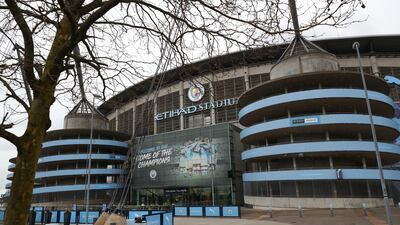Manchester City have confirmed they are committed to paying full wages to their entire non-playing staff during the coronavirus crisis, as other clubs faced widespread criticism for using the UK government's furlough scheme.
Five Premier League clubs – Liverpool, Tottenham Hotspur, Newcastle United, Bournemouth, and Norwich City – have so far decided to furlough a number of staff members and turned to the government to offset financial losses brought on by the pandemic, attracting plenty of negative responses given the abundant wealth in England's top flight.
City, however, have decided not to furlough any staff and ratified their decision at a board meeting on Friday.
City’s chief operating officer, Omar Berrada, confirmed to the club's hundreds of non-playing staff that their jobs will be protected without relying on the government scheme.
"We can confirm, following a decision by the Chairman and Board last week, that Manchester City will not be utilising the UK Government’s Coronavirus Job Retention Scheme," a Manchester City spokesperson said.
"We remain determined to protect our people, their jobs and our business whilst at the same time doing what we can to support our wider community at this most challenging time for everybody."
City's announcement comes at a time when the Premier League remain embroiled in a row over wage cuts after players rejected a move to cut their wages by 30 per cent, escalating a bitter public row as their union claimed the government would lose out on more than £200 million (Dh901m) in tax.

